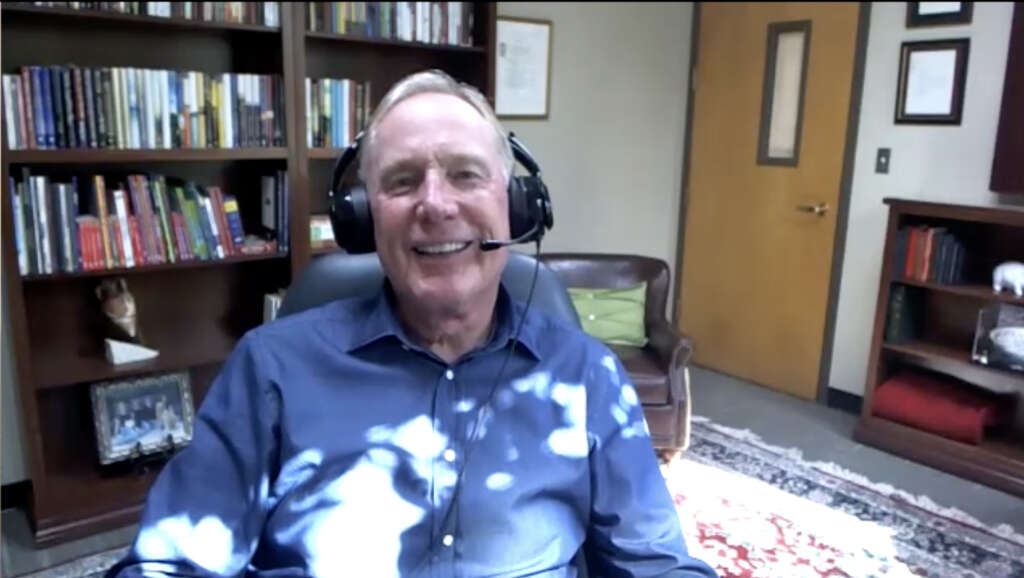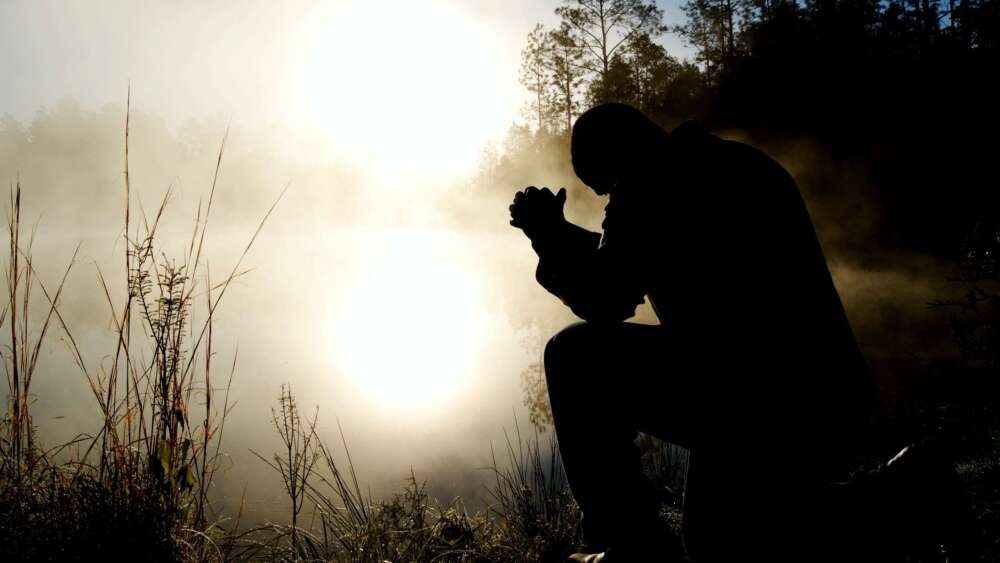Max Lucado explains why he prayed a prayer of repentance for racism
‘Max, it doesn’t matter what your white friends say about this prayer.’
Bestselling author Max Lucado has released a new book, You Are Never Alone – a timely message for a world dealing with a pandemic. His own country, the United States, also is in the throes of racial reckoning.
When preparing to interview Lucado, I came across an August interview he did with Randy Beamer, a news anchor in San Antonio, discussing what his church has been up to in recent months and why. It’s being this boots-on-the-ground, local church pastor that makes Lucado an author who can tell his reader “I’ve been visiting the sick since 1977”.
Clearly, his work as a minister and as an author are two sides of the same coin.
“We live in a day that the world is worried and weary and wounded – those are the words I keep using,” Lucado told Beamer. “We’re worried about the pandemic. We’re weary because we don’t know when the end is going to come. And we’re wounded by relational issues and racism issues.”
I mention that interview to Lucado and ask him if those words still ring true. He says I’ve “done my homework” to have found such a local interview.
“I think those words still fit the context of that interview with Randy, who’s one of our local news guys,” he says, “I think that the emotions of all Americans – and I think most people around the world – are pretty raw right now. The calls to hotlines for emotional help are up 891 per cent. It’s just staggering.”
 Yet there was a specific context to Lucado’s local TV interview with Beamer that he also explains.
Yet there was a specific context to Lucado’s local TV interview with Beamer that he also explains.
“We had a citywide prayer service and in it [was] a wonderful Black brother of mine – I only mention this, that he’s Black, because we prayed about racial reconciliation and offered a prayer of repentance.”
“It stirred up some frustration and anger – ‘Why should we repent?’ and ‘What do we have to do with that?’” recalls Lucado.
“Of course, you’re aware of our long history of slavery … it’s just not healed. It’s deep. It’s really deep. And I think that conversation is going to go on for a long time.”
“The big idea for me is that I would rather not talk about politics if I could avoid it.” – Max Lucado
This isn’t the first time Lucado has come under criticism for getting “political”. But his media rap sheet doesn’t begin to communicate the nuance of his views.
“People can’t figure me out, you know,” he laughs. “The big idea for me is that I would rather not talk about politics if I could avoid it. I’ve got very good friends, dear colleagues, with whom I have an honest disagreement on this,” he explains.
“I don’t want anybody to not come to our church because they think I’m going to talk about politics. OK, so [that is] kind of my big idea. However – however – sometimes I feel such a burden that I’ve just got to say something.”
Lucado says during the last US presidential campaign, he wrote an article about Donald Trump that was published in The Washington Post that was “not complimentary”.
“It stirred a lot of stuff on both ends”, he says. “I still do not regret writing that, but I have not felt a call from the Lord to do it again.
“I mean, I felt like if I didn’t say something, I’d be disobedient. And so I did it. I stepped out and said, ‘OK, I’m getting into the shark waters here for just a little bit. And then I’m getting out.’ I don’t want to live in that world.
“We have agreed that at the foot of the cross, the ground is level and maybe we can begin a conversation there.” – Max Lucado
“The same thing happened with the racial issue,” Lucado continues, before describing a group of ten Black pastors he meets with most Fridays.
“We’ve committed to talk – just to talk. They’re very concerned about what they’re seeing and I’m broken-hearted about what we’re seeing, but we all feel kind of stuck. We have agreed that at the foot of the cross, the ground is level and maybe we can begin a conversation there,” he says.
It was with one of these Black pastors that Lucado led the recent prayer for forgiveness that drew such harsh criticism.
“So we wanted to pray for a healing for the years of racism and the Lord woke me up – I don’t say that lightly – I woke up at 3:30 in the morning; I could not for the life of me go back to sleep.
“I was three days away from leading this prayer. So I climbed out of bed and I stumbled into my little study sitting there in my pyjamas,” he says.
“And I began to sense the Lord say to offer a prayer of repentance. He brought to mind the story of Daniel in the Old Testament – in Daniel 9, when Daniel asked the Lord for forgiveness for the sins of his fathers. And what I think the Lord revealed to me is that when you pray for forgiveness for the sins of your fathers, you’re not saying ‘I did that’,” he explains.
“‘I’ve never owned a slave, so I can’t honestly say ‘Lord, forgive me for owning a slave.’ But repentance is saying ‘Lord, what they did was wrong’. And that prayer needs to be heard by two groups. One, that prayer needs to be heard by the offended. So the Black church needs to hear a white pastor say that was wrong. And then, you know, who else needs to hear that? The spiritual beings, the demons and the angels and God in heaven,” he says.
‘Max, it doesn’t matter what your white friends say about this prayer.’
Lucado explains that, in Daniel’s case, when he prayed that prayer, the angel – who eventually came to visit him 21 days later – responded with “the moment you began to pray, your prayer was heard in heaven, but the Prince of Persia engaged me with battle, so I had to call upon Michael to help them fight the battle’” (see Daniel 10).
“It’s really one of the most fascinating stories of spiritual warfare in the whole Bible,” he remarks.
“But what he prayed was ‘forgive the sins of my fathers’. That was a prayer of repentance. So what I sensed the Lord saying is, ‘Max, it doesn’t matter what your white friends say about this prayer. What matters is that you agree in the heavens that that was wrong and that your Black brethren, they hear it as well.’”
With the prayer over, Lucado says he has a sense of “mission accomplished” as far as what he was supposed to do. But he admits that “I really got beat up by some friends. They just said you shouldn’t pray like that. So I told them what I just told you and, you know, we’ll see what happens. But that’s not something I like to do really,” he says.
Did the criticism come from within Lucado’s own church community?
“No, not people in our church. I’ve been here since 1988. They’ve learned to love me and, if they don’t, they’ve moved on. They were very kind.”





